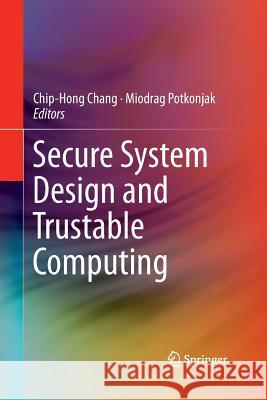Secure System Design and Trustable Computing » książka
topmenu
Secure System Design and Trustable Computing
ISBN-13: 9783319352213 / Angielski / Miękka / 2016 / 537 str.
Kategorie:
Kategorie BISAC:
Wydawca:
Springer
Język:
Angielski
ISBN-13:
9783319352213
Rok wydania:
2016
Wydanie:
Softcover Repri
Ilość stron:
537
Waga:
0.76 kg
Wymiary:
23.39 x 15.6 x 2.84
Oprawa:
Miękka
Wolumenów:
01
Dodatkowe informacje:
Wydanie ilustrowane











